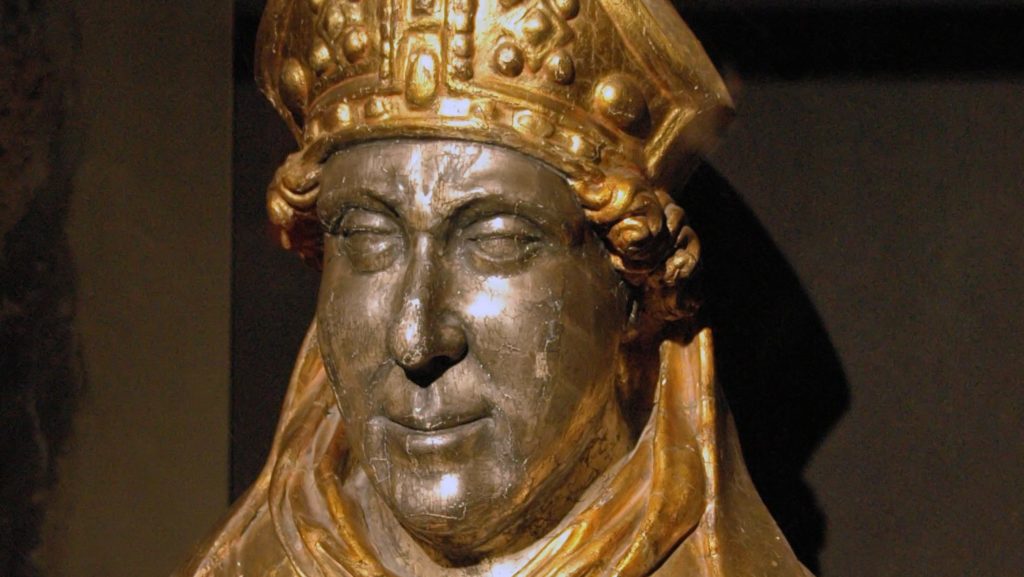St. Engelbert was born in Berg around 1185, the son of a count. He studied at the cathedral school in Cologne, and was made provost of the churches of St. George and St. Severin while he was still a boy. In 1199, he was made provost of the cathedral at Cologne.
Engelbert was involved in many worldly affairs, and waged war for his cousin, Archbishop Adolf, against Archbishop Bruno. Adolf and Engelbert were excommunicated by the pope and deposed for two years until he submitted to the pope, and joined the crusade against the Albigenses.
In 1216, he was elected Archbishop. He welcomed Franciscans and Dominicans into his diocese, and insisted on strict religious observance. He was known as a friend to the poor and the clergy.
In 1221, Engelbert was appointed guardian of the king of Germany, Henry VII, who was then a minor, and administrator of the empire. At 12, Henry was crowned king by Engelbert, who continued to watch over his education and secure peace within the realm.
Many of the nobility feared Engelbert, and he surrounded himself with bodyguards. His own family posed a threat to him as well; his cousin, a count, had oppressed the abbey of nuns in Essen, and Honorius III urged Engelbert to protect the nuns. The count and his men attacked Engelbert one evening and killed him. His body was covered and brought to Cologne four days later. The cousin was banned and punished, and confessed his guilt before he died.
Engelbert’s body was laid in the cathedral of Cologne in 1226. Cardinal Conrad von Urach declared him a martyr, and a convent for nuns was erected in the place where he died.

